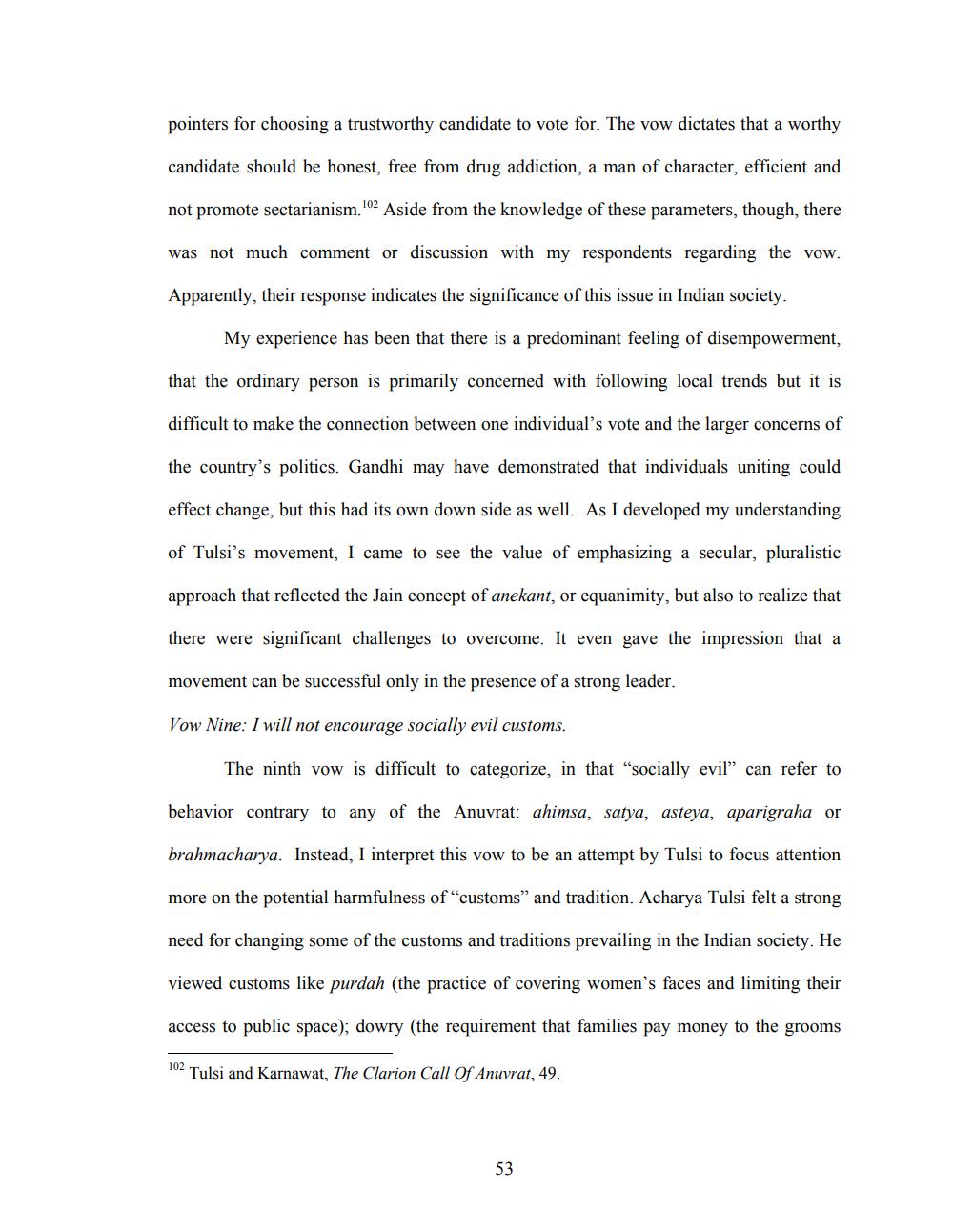________________
pointers for choosing a trustworthy candidate to vote for. The vow dictates that a worthy
candidate should be honest, free from drug addiction, a man of character, efficient and
not promote sectarianism. 12 Aside from the knowledge of these parameters, though, there
was not much comment or discussion with my respondents regarding the vow.
Apparently, their response indicates the significance of this issue in Indian society.
My experience has been that there is a predominant feeling of disempowerment,
that the ordinary person is primarily concerned with following local trends but it is
difficult to make the connection between one individual's vote and the larger concerns of
the country's politics. Gandhi may have demonstrated that individuals uniting could
effect change, but this had its own down side as well. As I developed my understanding
of Tulsi's movement, I came to see the value of emphasizing a secular, pluralistic
approach that reflected the Jain concept of anekant, or equanimity, but also to realize that
there were significant challenges to overcome. It even gave the impression that a
movement can be successful only in the presence of a strong leader.
Vow Nine: I will not encourage socially evil customs.
The ninth vow is difficult to categorize, in that "socially evil” can refer to
behavior contrary to any of the Anuvrat: ahimsa, satya, asteya, aparigraha or
brahmacharya. Instead, I interpret this vow to be an attempt by Tulsi to focus attention
more on the potential harmfulness of "customs” and tradition. Acharya Tulsi felt a strong
need for changing some of the customs and traditions prevailing in the Indian society. He
viewed customs like purdah (the practice of covering women's faces and limiting their
access to public space); dowry (the requirement that families pay money to the grooms
102 Tulsi and Karnawat, The Clarion Call Of Anuvrat, 49.
53




